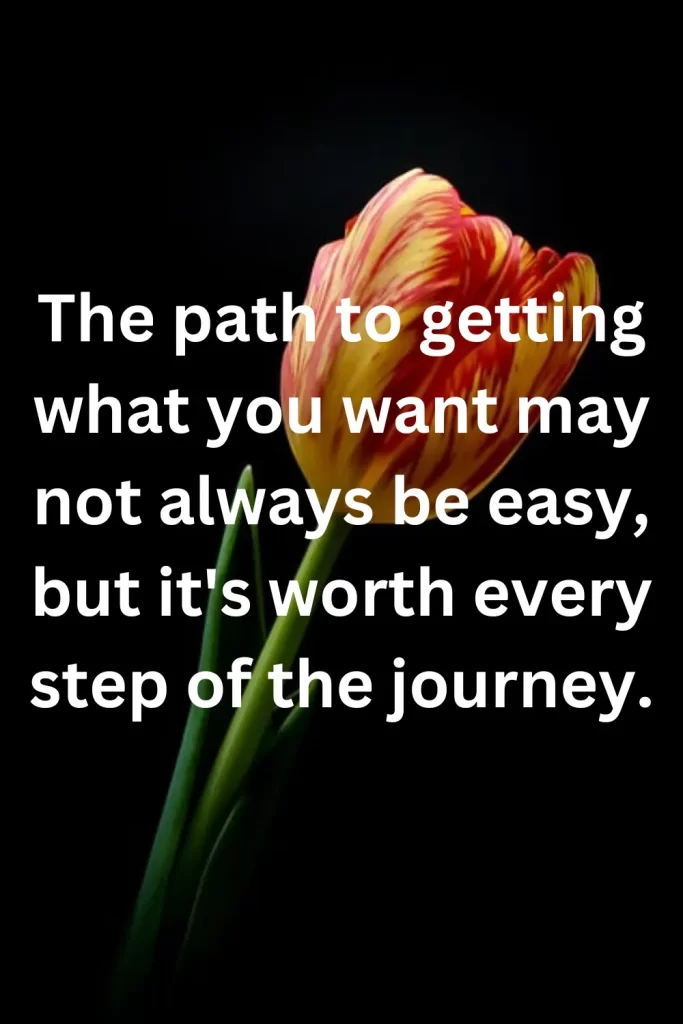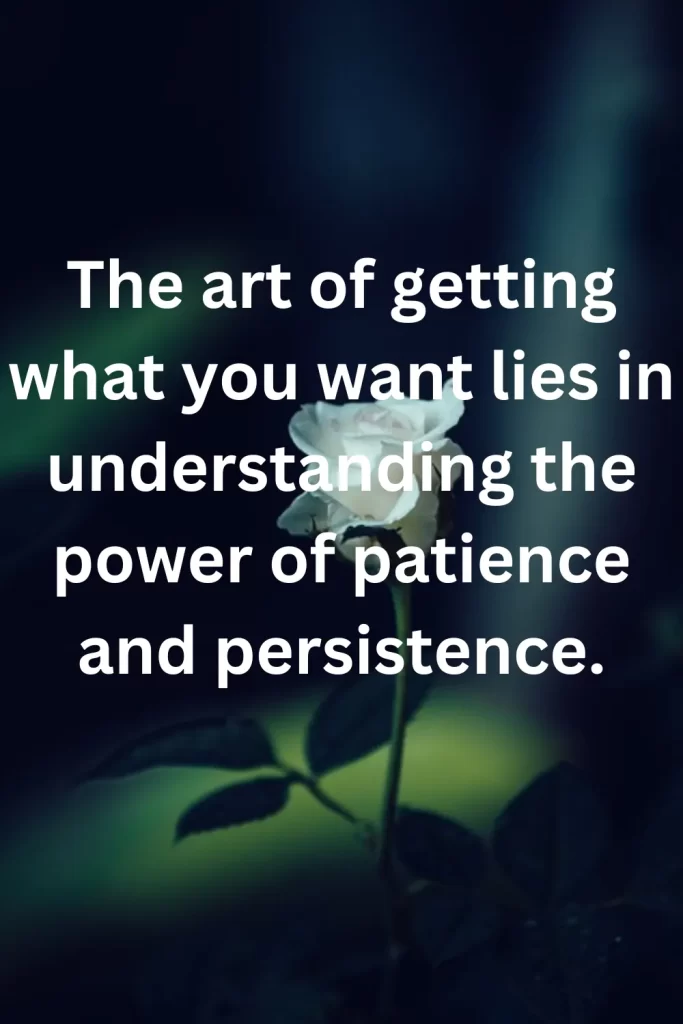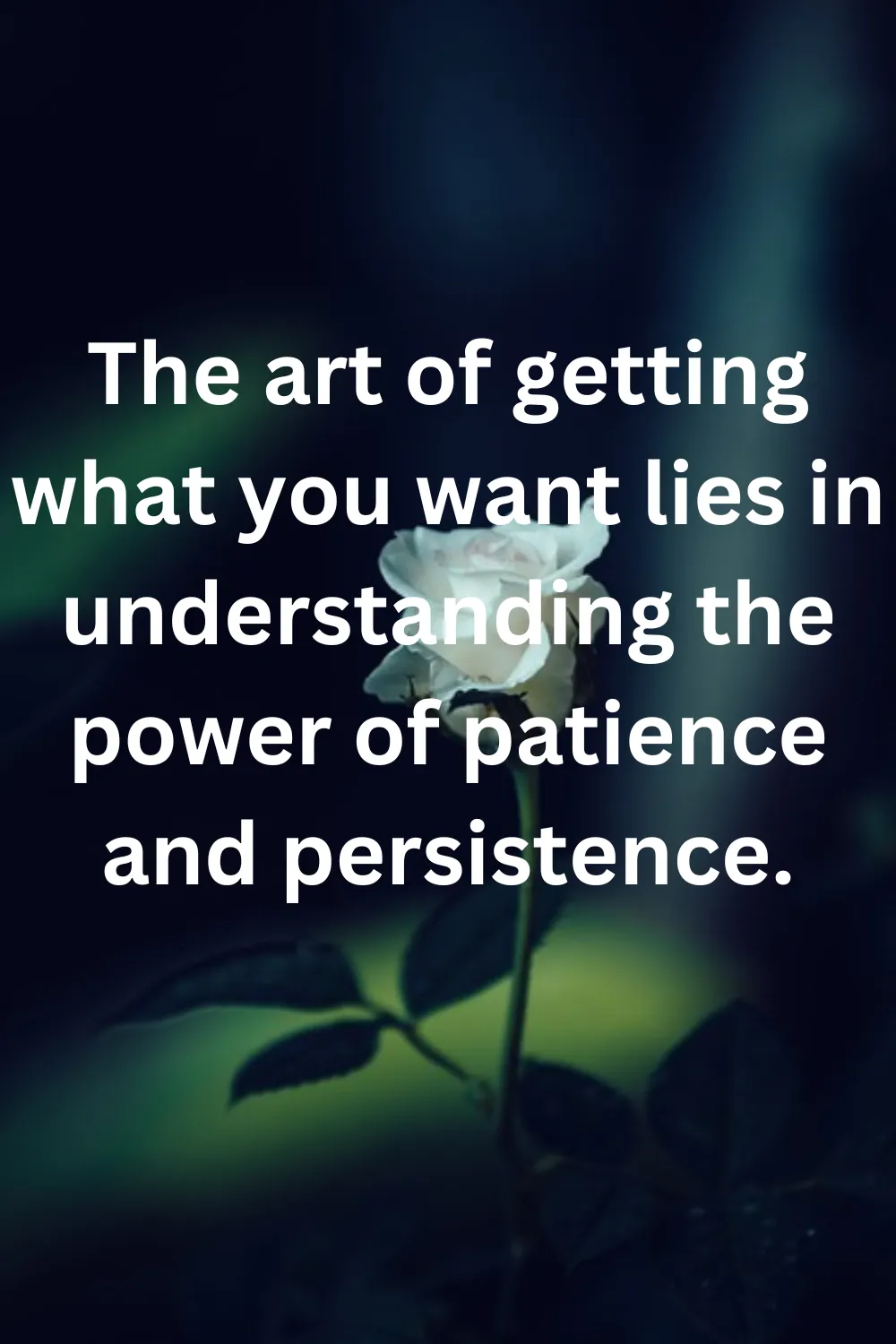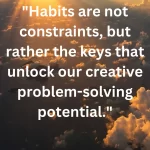Master the art of persuasion and watch as your desires become reality. Say goodbye to begging and hello to effortless achievement.
Table of Contents
Are you tired of feeling like you have to beg or plead for what you want? Well, get ready to leave all that behind as we dive into the fascinating world of getting what you want without having to ask twice! Imagine a life where your desires effortlessly manifest, where your needs are met with ease, and where opportunities seem to magically present themselves.
Sound too good to be true? Think again! In this article, we will unlock the secrets of mastering the art of getting what you want, giving you the tools and strategies necessary to attract abundance and achieve your goals.
Get ready for a thrilling journey filled with excitement and possibilities!
The Power of Effective Communication
Effective communication is a skill that can truly transform your personal and professional life.
Whether it’s in a job interview, a negotiation, or simply in your everyday interactions with others, the power of effective communication cannot be underestimated.
When you are able to clearly articulate your thoughts and feelings, listen actively to others, and create strong connections through your words, doors of opportunity open up for you.
One of the key aspects of effective communication is the ability to convey your message in a concise and compelling manner.
People today have shorter attention spans than ever before, so being able to get your point across succinctly is crucial.
By doing so, you grab their attention from the start and increase the chances of them actually listening and engaging with what you have to say.
Additionally, using language that is relatable and tailored to your audience helps ensure that they understand your message on a deeper level.
Another powerful aspect of effective communication lies in active listening. Too often we focus on what we want to say next rather than truly listening to what the other person is saying.
When we engage in active listening by paying full attention and providing feedback through verbal nods or summarizing their points, we make the other person feel heard and valued.
This creates trust and strengthens our connection with them, making it more likely for them to support us or be open to our ideas.
In conclusion, mastering effective communication skills can greatly enhance our ability to get what we want in life without having to ask twice.
Understanding Your Needs and Desires
Understanding one’s needs and desires is a crucial step towards achieving personal fulfillment and happiness.
Often, we may find ourselves puzzled as to why we feel unsatisfied despite seemingly having everything we could want.
This discrepancy arises when our external wants fail to align with our internal needs. Digging deep into our psyche and understanding the core values that drive us can help bridge this gap.
True self-awareness requires delving into the depths of our emotional landscape, identifying what truly brings us joy, and discerning what is merely society’s influence on our desires. It involves asking ourselves tough questions like,
What do I really need to be happy? or What actions will align me with my true purpose?
By answering these questions honestly, free from external pressures, we become more in tune with ourselves and gain clarity on what truly matters in life.
When it comes to desires, it’s essential to differentiate between short-term pleasures and long-term fulfillment. We often fall into the trap of chasing immediate gratification that ultimately leaves us longing for something more substantial.
By taking the time to understand our desires at a deeper level, we become better equipped to pursue goals that bring lasting satisfaction rather than temporary pleasure.
Ultimately, understanding our needs and desires is an ongoing process that requires introspection and adaptation as we grow and evolve over time.
By investing in this journey of self-discovery, we open doors to a more fulfilling existence where getting what we want becomes a natural consequence of knowing who we are at our core.

Mastering the Art of Persuasion
Mastering the art of persuasion is a skill that can open doors and create countless opportunities in your personal and professional life.
At its core, persuasion is about inspiring others to see your perspective and take action.
But it goes beyond simply convincing someone to agree with you; true persuasion involves understanding their needs, desires, and motivations.
To truly master this art, it’s important to develop empathy, listening skills, and the ability to connect emotionally with others.
By putting yourself in their shoes and understanding their point of view, you can tailor your message in a way that resonates with them on a deeper level.
This not only makes your argument more compelling but also builds trust and fosters long-term relationships.
Another key aspect of persuasion is using evidence and logic effectively. People are more likely to be persuaded when presented with facts, data, or logical reasoning that supports your claims.
However, it’s important to remember that emotions play a significant role in decision-making as well.
By combining both rational arguments and emotional appeals, you can create a persuasive case that speaks directly to the hearts and minds of your audience.
In conclusion, mastering the art of persuasion requires a delicate balance between empathy, logic, and emotion.
By understanding the perspectives of others while presenting compelling evidence for your own position, you can become an effective persuader who gets what they want without having to ask twice.
So practice these skills diligently – soon enough you’ll find yourself achieving success in every area of life!
Building Strong Relationships for Success
Building strong relationships is essential for success in any aspect of life. Whether it be personal or professional, the quality of our relationships can greatly impact our ability to achieve our goals and get what we want.
One of the key factors in building strong relationships is communication. It is important to not only express ourselves clearly but also actively listen and understand others’ perspectives.
By fostering open and honest communication, we can establish trust and mutual respect, which are crucial for long-lasting relationships.
Another vital aspect of building strong relationships is empathy. Demonstrating empathy allows us to connect with others on a deeper level and understand their emotions and needs.
When we genuinely care about others’ well-being, it strengthens our bond with them, making it easier to collaborate and work towards common goals together.
Additionally, showing empathy in times of conflict or disagreement can help diffuse tension and lead to more productive conversations.
Lastly, building strong relationships requires effort and investment from both parties involved.
It’s important to prioritize the people we value by spending time with them, engaging in meaningful conversations, and offering support when needed.
By continuously nurturing these relationships through small gestures like kind words or thoughtful acts of kindness, we can create a solid foundation built on trust, understanding, and support that will ultimately contribute to our overall success.
In conclusion, while achieving our goals may rely on individual skills or resources at times; however; building strong relationships is also an integral part of success that should not be overlooked or underestimated.

Overcoming Obstacles and Rejections with Confidence
Overcoming obstacles and rejections can be a daunting task, but doing so with confidence can set you on the path to success.
One key aspect of building confidence is understanding that obstacles and rejections are a natural part of life’s journey.
Rather than seeing them as roadblocks, view them as stepping stones towards growth and improvement.
Embrace the challenges that come your way, knowing that each one presents an opportunity to learn and develop resilience.
Confidence also requires a belief in oneself and one’s abilities. When faced with obstacles or rejections, it’s important to remind yourself of your own worth and potential.
Recognize that setbacks are not reflections of your capabilities but rather temporary setbacks.
Channel your energy into turning rejection into motivation to prove yourself wrong.
In addition, seeking support from others can greatly enhance your ability to overcome obstacles and rejections with confidence.
Surrounding yourself with positive influences who believe in you can provide encouragement during tough times.
Also, strive to learn from those who have successfully navigated similar situations before you. Their experiences can offer valuable insights and strategies for overcoming challenges.
Ultimately, by approaching obstacles and rejections with confidence, you empower yourself to move forward without fear or self-doubt.
Remember that every successful person has faced their fair share of setbacks – it is how they bounce back that truly sets them apart.
The Importance of Persistence and Resilience
Life is full of obstacles and challenges, but it is those who possess persistence and resilience that truly stand out from the crowd.
These are the individuals who refuse to give up when faced with setbacks and instead use them as stepping stones towards success.
The importance of persistence cannot be overstated, as it is often the key ingredient in achieving our goals and dreams.
Resilience, on the other hand, is what allows us to bounce back from failures and disappointments. It is about having the strength to keep going even when everything seems to be falling apart.
And while both persistence and resilience are essential qualities for success, they are not always easy to develop. They require a strong mindset, determination, and a willingness to embrace failure as an opportunity for growth.
When we persist in our endeavors despite the obstacles that come our way, we build character and confidence.
We learn valuable lessons from each setback and become better equipped to handle future challenges. Similarly, when we cultivate resilience, we become more adaptable and open-minded in our approach to life’s twists and turns.
By practicing persistence in everything we do, whether it’s pursuing a career or tackling personal goals, we set ourselves up for long-term success. It may not always be easy or straightforward, but with unwavering determination comes great rewards.
And remember that resilience is not just about bouncing back; it’s also about discovering new possibilities amid adversity.
Conclusion: Unlocking Your Potential to Achieve Anything
In conclusion, unlocking your potential to achieve anything requires a combination of self-belief, determination, and continuous growth. It is crucial to remember that success is not an endpoint but rather a journey filled with ups and downs.
Embrace failures as learning opportunities and keep moving forward. Surround yourself with like-minded individuals who inspire and motivate you to push your limits.
Furthermore, it is important to set clear goals and break them down into smaller achievable steps.
This approach allows you to stay focused and track your progress along the way.
Celebrate every milestone reached, no matter how small it may seem – each step forward brings you closer to realizing your true potential.
Ultimately, unlocking your potential is about adopting a growth mindset that allows you to see challenges as opportunities for growth rather than obstacles holding you back.
Believe in yourself, visualize your dreams vividly, and take consistent action towards achieving them.
Remember, the only limits that exist are the ones we impose on ourselves – go out there and unlock the limitless possibilities that await you!

FAQs
1. How can I improve my communication skills?
Improving communication skills is essential for anyone looking to enhance their personal and professional relationships.
While there isn’t a one-size-fits-all approach, there are some strategies you can employ to become a more effective communicator.
Firstly, active listening is key – focus on truly understanding what the other person is saying rather than simply waiting for your turn to speak.
This not only improves comprehension but also shows respect and empathy towards the speaker.
Secondly, nonverbal cues play a significant role in communication. Pay attention to your body language, facial expressions, and tone of voice.
Being aware of these aspects allows you to convey your message more effectively and avoid any misinterpretations that could lead to misunderstandings or conflict.
Lastly, practice assertiveness in your communication style while still being respectful of others’ boundaries.
Clearly expressing your thoughts and opinions without being aggressive or passive ensures that you are heard while maintaining the integrity of the conversation.
By implementing these techniques consistently, you will find that your ability to communicate effectively will improve significantly, leading to better connections and greater success in achieving what you want in life.
2. What strategies can I use to set achievable goals?
Setting achievable goals is an art that requires a strategic approach. One effective strategy is to break down larger goals into smaller, more manageable tasks.
By dividing your goal into concrete steps, you can easily track your progress and stay motivated along the way.
Additionally, setting specific and measurable targets allows for clearer focus and direction.
Another powerful strategy is to visualize your success. By creating a mental image of what achieving your goal looks like, you can harness the power of visualization to enhance motivation and increase the likelihood of success.
Visualization also helps you stay focused on the end result rather than getting overwhelmed by obstacles or setbacks.
Finally, accountability plays a vital role in goal-setting. Sharing your goals with someone else – whether it’s a friend, family member, or colleague – can provide support and encouragement throughout your journey.
Moreover, regularly reviewing your progress with someone who holds you accountable can help ensure that you stay on track and make necessary adjustments as needed.
By employing these strategies – breaking down goals into manageable tasks, visualizing success, and seeking external accountability – setting achievable goals becomes an intentional process that brings you closer to realizing your dreams.
So don’t wait any longer – unleash the artist within yourself by mastering these strategies and start making transformative changes today!
3. How do I manage stress effectively?
One of the key ingredients to achieving what you want in life is effectively managing stress. Stress can hinder your progress, cloud your judgment, and drain your energy.
So how can you manage stress effectively? The first step is recognizing the signs of stress and being aware of when it starts to creep into your life.
From there, it’s important to find healthy coping mechanisms that work for you – whether it’s exercising, meditating, or practicing mindfulness.
Another effective way to manage stress is by prioritizing self-care. This means taking time out of your busy schedule to focus on yourself and recharge.
Engage in activities that bring you joy and relax your mind; this could be reading a book, taking a long bath, or spending quality time with loved ones.
By making self-care a priority, you’ll not only reduce stress but also improve your overall well-being.
Lastly, learning how to effectively manage time can significantly reduce stress levels.
When we feel overwhelmed by an ever-growing to-do list or constant deadlines hanging over our heads, our stress levels skyrocket.
To combat this, practice setting priorities and creating a realistic schedule that allows ample time for both work and relaxation.
By incorporating effective time management strategies into your daily routine, you’ll feel more in control of your tasks and less stressed about deadlines.
In conclusion, managing stress effectively is crucial for achieving what we want in life.
4. What are some tips for boosting productivity?
There are several tips and tricks that can help boost productivity and make the most out of your day.
One effective strategy is to break your tasks into smaller, more manageable chunks.
This allows you to focus on one task at a time, preventing overwhelm and increasing efficiency.
Additionally, prioritizing your tasks based on urgency and importance can help ensure that you tackle the most critical ones first, leaving you with a sense of accomplishment.
Another tip for boosting productivity is to eliminate distractions. In today’s digital age, it’s easy to get distracted by notifications from social media or email alerts.
Consider turning off these notifications or setting specific times throughout the day to check them instead of constantly being interrupted.
Creating a designated workspace can also be beneficial as it signals to your brain that it’s time to focus and be productive.
Furthermore, incorporating self-care activities into your routine can have a significant impact on productivity.
Taking short breaks throughout the day for stretching, deep breathing exercises, or even going for a walk outside can rejuvenate both body and mind, improving concentration and overall performance.
Remember that finding what works best for you may require some trial and error but investing in implementing these tips will undoubtedly lead to increased productivity levels.
5. How can I overcome procrastination?
Procrastination, often referred to as the thief of time, is an obstacle that many of us face in our pursuit of productivity.
Overcoming procrastination requires self-discipline and a willingness to break free from the comfort zone.
One effective strategy is to start with small tasks rather than overwhelming yourself with large projects.
By conquering smaller milestones, you build momentum and gain a sense of accomplishment that motivates you to tackle larger goals.
Another tactic is to create a schedule or to-do list. Write down specific deadlines for each task, and hold yourself accountable by sticking to those timelines.
Breaking your goals into manageable chunks also helps reduce stress and overwhelm, making it easier to get started.
Additionally, finding ways to make tasks enjoyable or rewarding can provide extra motivation.
Whether it’s incorporating elements of your favorite hobby or setting up short-term incentives like treats or breaks, discovering what makes you more excited about completing the task at hand will help overcome procrastination effectively.
Lastly, remember that perfectionism often fuels procrastination by creating an immense fear of failure or not meeting high standards.
Recognize that mistakes are part of the learning process and embrace imperfections as opportunities for growth instead of letting them hinder progress.
By reframing how we understand success and failure, we can release ourselves from the burden they impose on our creative journey towards achieving what we desire most in life – without having to ask twice!
6. How can I build better relationships with others?
Building better relationships with others is an essential skill for success in both personal and professional settings. One key to building stronger connections is active listening.
Often, we are so focused on getting our own point across that we fail to truly hear what the other person is saying.
By giving full attention to the speaker, maintaining eye contact, and asking probing questions, we can show genuine interest and understanding.
Another important aspect of building better relationships is empathy. Putting ourselves in another person’s shoes allows us to understand their perspective and helps in fostering a deeper connection.
Empathy also enables us to respond more effectively, showing compassion and support when needed.
Finally, taking the time to appreciate others can go a long way in strengthening relationships.
Expressing gratitude for their contributions or simply acknowledging their presence can make people feel valued and validated.
Ultimately, building better relationships requires effort and intentionality but can result in more fulfilling connections that bring joy and meaning into our lives.
7. How can I improve my problem-solving skills?
Improving problem-solving skills is crucial for achieving success in all aspects of life.
Whether it’s solving complex puzzles or tackling real-life challenges, the ability to think critically and come up with innovative solutions can set you apart from the rest.
One way to enhance your problem-solving skills is by embracing a growth mindset. Instead of viewing problems as roadblocks, see them as opportunities to learn and grow.
This mindset shift allows you to approach problems with an open mind and a willingness to try new strategies.
Another effective technique for improving problem-solving skills is practicing creative thinking.
This involves stepping outside of your comfort zone and exploring unconventional ideas or solutions.
Engaging in activities such as brainstorming sessions, mind mapping, or even taking up a new hobby that encourages creative thinking can all help sharpen your problem-solving abilities.
Additionally, seeking feedback from others and considering different perspectives can provide fresh insights into challenging situations.
In conclusion, enhancing problem-solving skills is essential for attaining what you desire in life.
By adopting a growth mindset and actively engaging in creative thinking exercises, you can develop the ability to tackle problems head-on with confidence and find effective solutions that lead to success.
Remember, every challenge presents an opportunity for personal growth – embrace it!
8. What are effective ways to stay motivated?
Staying motivated can be a challenge, especially when faced with adversity or setbacks.
However, there are several effective ways to maintain motivation and keep pushing towards your goals. One strategy is to break down your goals into smaller, more manageable tasks.
By doing so, you’ll create a sense of progress and accomplishment as you tick off each task on your list. Additionally, surrounding yourself with positive influences can be highly motivational.
Whether it’s seeking the support of friends and family or finding an inspiring mentor or role model, being around people who believe in you and encourage you can boost your confidence and motivation.
Another effective way to stay motivated is by visualizing success. Take some time each day to imagine yourself achieving your goals and experiencing the rewards that come with it.
This visualization technique helps reinforce the idea that success is possible and gives you something tangible to strive for.
Furthermore, setting realistic deadlines for specific milestones along the way can provide a sense of urgency and help keep you focused on your objectives.
In conclusion, staying motivated is crucial when pursuing our dreams and aspirations.
By breaking down goals into smaller tasks, surrounding ourselves with positive influences, visualizing success, and setting realistic deadlines, we can stay engaged and inspired throughout our journey towards achieving what we truly desire in life.
Remember that motivation comes from within but can also be nurtured by external factors; finding the right balance between both approaches will help unleash our fullest potential.

Quotes – no need to ask me twice
“Master the art of persuasion by confidently presenting your desires, because when you believe in what you want, others are more likely to believe in it too.”
“Instead of asking twice, learn to communicate effectively and create a compelling case that leaves no room for hesitation or doubt.”
“Embrace the power of patience and persistence; sometimes getting what you want requires a delicate dance between timing a”
“Success is not about getting what you want, but rather learning what you truly desire.”
“The art of getting what you want lies in understanding the power of patience and persistence.”
“Don’t focus on just getting what you want; instead, strive to create a life that makes you forget what you wanted in the first place.”
“The secret to mastering the art of getting what you want is realizing that sometimes what you need may be different from what you initially wanted.”
“Don’t be afraid to ask for what you want, because the answer is always ‘no’ if you don’t ask.”
“Getting what you want is not about luck, it’s about having the courage to pursue it relentlessly.”
“The path to getting what you want may not always be easy, but it’s worth every step of the journey.”
“Remember that getting what you want doesn’t define your worth; it’s the effort and growth along the way that truly matters.“










